As we age, our bodies begin to slow down the production of various things that help us appear youthful. Collagen, elastin, and even lean muscle tissue, a process known as atrophy, all have an effect on the way we age. While there isn’t a magic formula that will help these remain at the same output, there are certain healthy habits you can adopt to help minimize the appearance of aging.
Healthy habits, including sleeping well, eating a healthy diet, and exercising more, can all assist in slowing down the aging process. While we can add these habits to our daily routine to help, there are also certain behaviors we can avoid to ensure we aren’t speeding up the way we age.
Aging is not something you can avoid. It is an inevitable and natural body process, but many people go to extraordinary lengths to slow it down or even reverse it. Growing old can seem daunting and scary if one looks at how scientists describe it: “Aging is the inevitable progressive decline in intrinsic physiological function over time, leading to an increase in pathologies, including cancer.”
One of the first organs to show signs of aging is the skin. From wrinkles, fine lines, dryness, and discoloration, the aging process is also the most visible here. But it’s not the only sign. Our brain, lungs, eyes, and ears can also be damaged by what we do or don’t do. (This is exactly what happens to your skin as you age.)
A list of 20 daily habits that make people look older prematurely was compiled by 24/7 Tempo after reviewing dozens of reports in medical journals and various medical schools and associations focusing on skin health.
Here are 20 mistakes you make every day that are aging you
1. Drinking through a straw
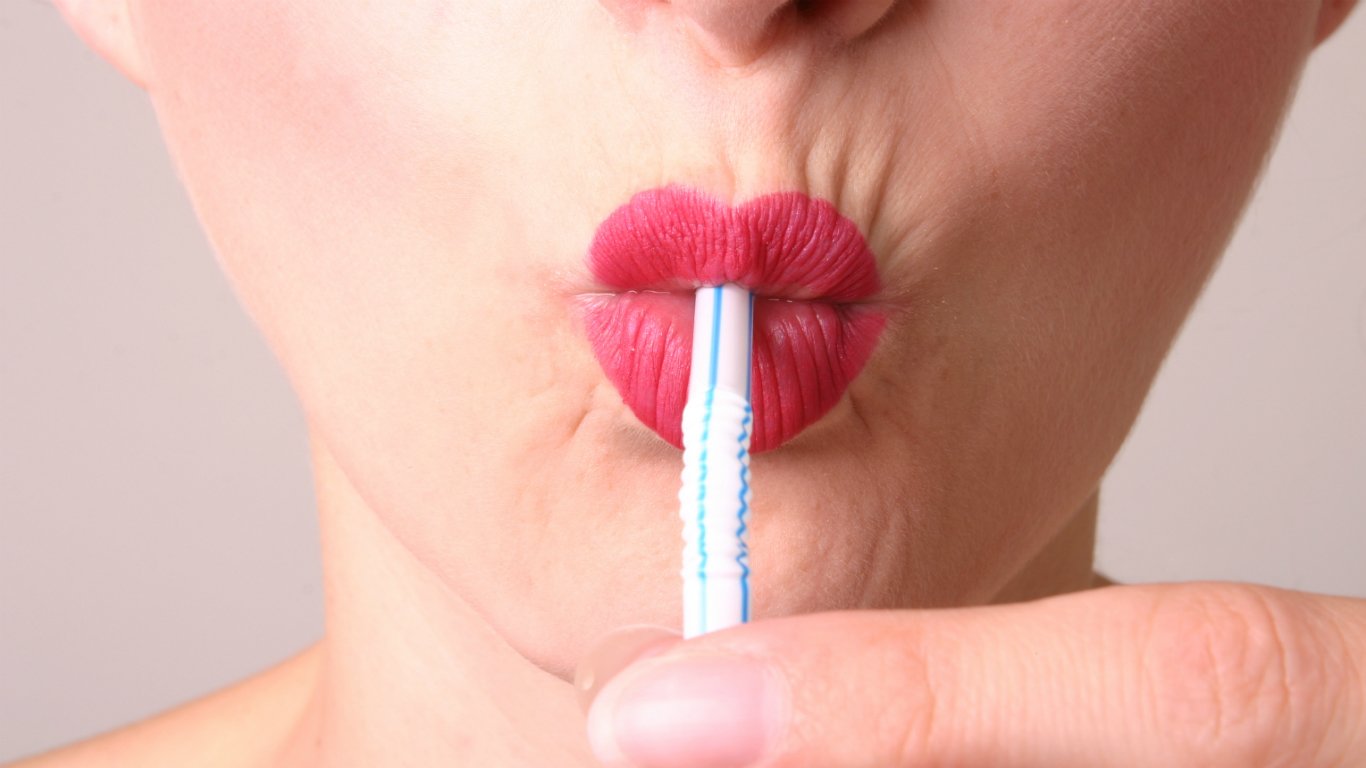
Repeated facial movements are the offender here. When you purse your lips regularly, it may cause the skin to lose elasticity more quickly, leading to premature lines and wrinkles around the mouth. Drinking from a bottle has a similar effect. To be on the safe side, just pour water into a cup and drink it that way.
2. Drinking anything but water

Lack of hydration, or dehydration, can cause wrinkles to occur. Loss of collagen and elasticity, which leads to sagging skin, as well as loss of hyaluronic acid, a natural substance that is often used as lip filler in plastic surgery, hurt the skin’s ability to retain water. This makes fine lines and scales even more apparent. Sugary beverages, such as sodas, fruit juices, and sports drinks can accelerate cell aging.
3. Enjoying Happy Hour too much

There is a correlation shown, in a study of more than 11,000 people, between high alcohol consumption and visible signs of premature aging. Specifically, drinking too much increases the risk of developing arcus corneae (a white or gray half-circle on your eye) and earlobe crease (a line or a wrinkle in the middle of the earlobe). Alcohol also causes dehydration, which is a major contributor to premature aging.
4. Always having dessert

Dessert may be delicious at the moment, but sugar can have a detrimental, long-term effect on the skin. It damages collagen fibers and makes it harder for them to heal. Glucose and fructose connect the amino acids in the collagen and elastin that support the skin, producing advanced glycation end products (AGEs), which contribute to increased oxidant stress and inflammation. Both of them are huge factors in skin aging.
5. Cranking up the heat at home
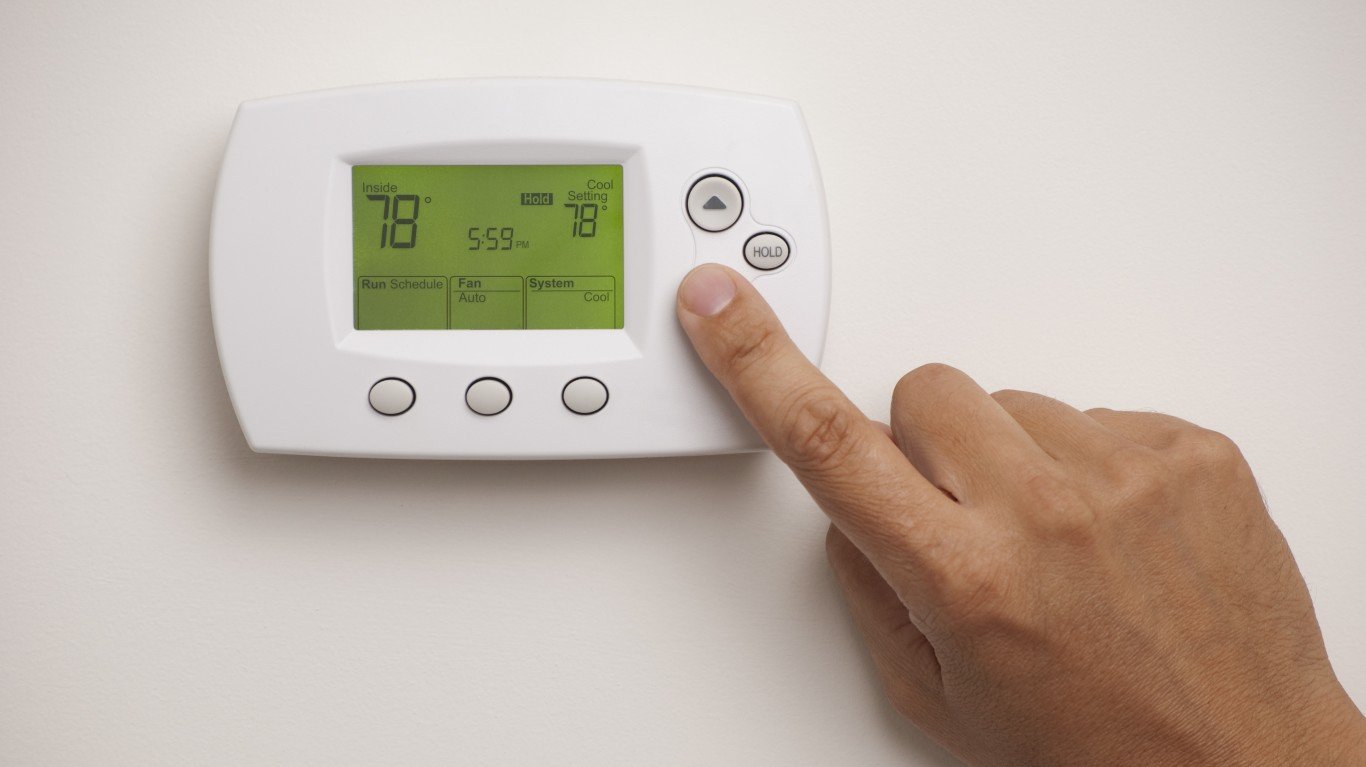
You may prefer it to be warm in your home, especially during the colder months, but increasing a room’s temperature dries the air by sucking out the moisture. Over time, this can lead to dry and itchy skin. A study suggests that even a 30% difference in relative humidity can affect skin properties in a short time.
Skin elasticity was shown to decrease significantly, as well as showing a substantial increase in wrinkles after exposure to dry air. Bedroom temperatures should be between 60 and 67 degrees Fahrenheit, according to the National Sleep Foundation; the World Health Organization recommends a temperature of 69.8 degrees Fahrenheit for the living room and 64.4 degrees Fahrenheit for other occupied rooms.
6. Sleeping on your stomach or side

Sleep may be the time when the body rests and rejuvenates but it can also make you look older depending on how you sleep. If you sleep on your side or stomach, according to research published in the Aesthetic Surgery Journal, you are contributing to the aging process. Facial aging, or sleep wrinkles, develop over time due to sleep positions. The skin on your face is subject to shear force, tension, and compression. As a result, it stretches in all directions, leading to stiffness and loss of elasticity over time.
7. Not getting enough sleep

The quantity of sleep is just as important as the quality. Insufficient shuteye can cause just as much damage to your skin. Research by University Hospitals Case Medical Center found that poor sleepers showed more signs of skin aging. Skin that was already damaged by stressors such as ultraviolet lights was shown to recover at a slower pace in poor sleepers. Another study, by the University of California Los Angeles, suggested that just one night of insufficient sleep makes body cells in older adults, both men and women, age faster.
8. Eating too much junk food

Food is an essential component of life but what you eat is important. If you think you look older than your age, your diet might be the culprit. The worse the foods you put in your body, the worse you will feel. Junk food can have a lot of trans fats, salt, and sugar, and very little, if any, nutritional benefits.
It lacks vitamins and minerals the body and the skin need to stay healthy. It also damages collagen, which helps prevent wrinkles. Unhealthy dietary habits lead to the production of free radicals in the body that accelerate aging. Fruits and vegetables are a much better option.
9. Having too much screen time

Too much screen time is known to have adverse health effects. The blue light emitted by your laptop, phone, or TV is not only preventing you from falling asleep, but it may also be damaging your skin. This high-energy visible light may cause a lot of skin damage, according to some research.
It decreases carotenoids in the skin, leading to an increase of free radicals and degradation of the epidermal antioxidants. Long exposure to blue light may speed up the oxidation process, causing inflammation and damaging the skin, making it prone to lines and wrinkles.
10. Slouching

We’ve all been told to sit up straight and with good reason. Poor posture contributes to accelerated wear and tear on the joints and muscle strain, resulting in back pain. Slouching can also contribute to the so-called “tech neck,” which has been linked to wrinkles around the neck and chin due to the constant downward gaze. Slouching alters the spine’s natural alignment, putting pressure on muscles and bones, and possibly causing permanent deformity.
11. Rubbing your eyes
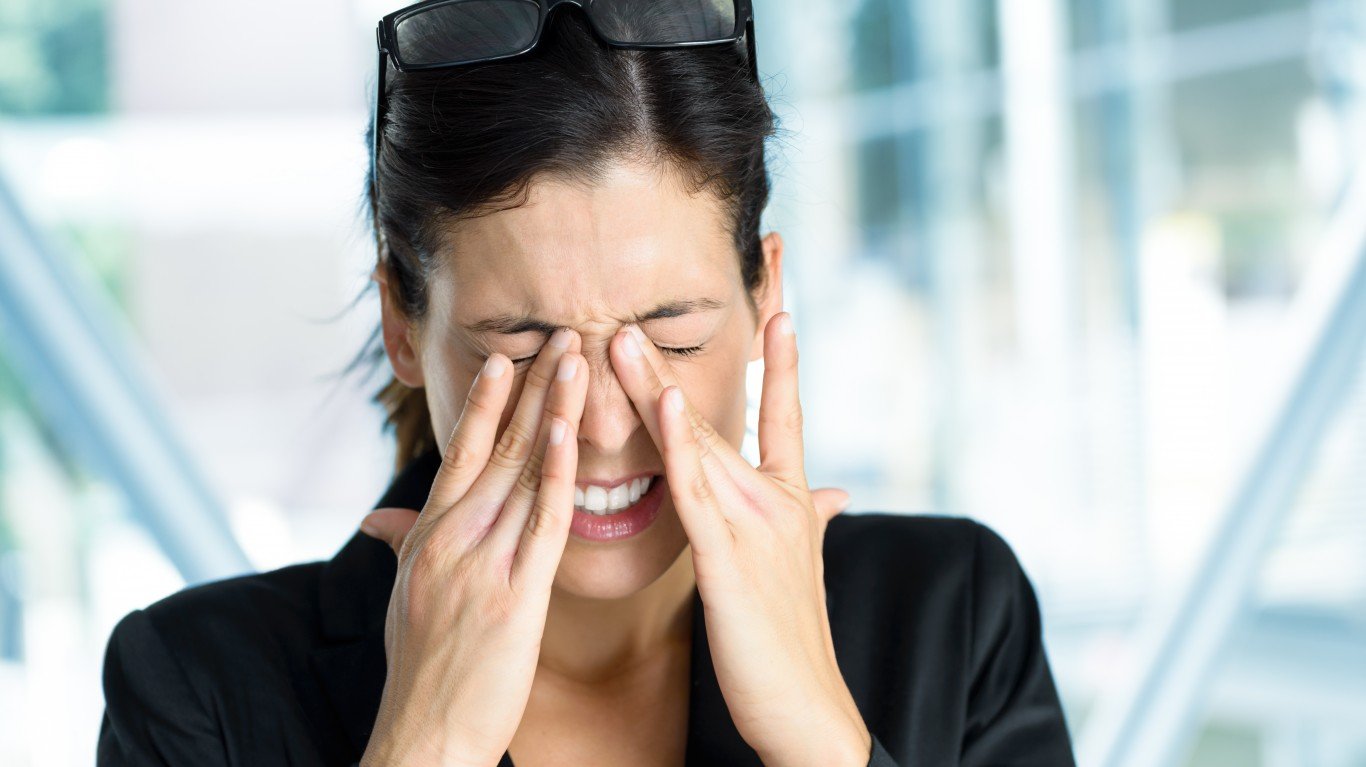
As is the case with most habits, a problem occurs when it’s chronic. Our eyes are one of the places where aging signs appear first. The issue with rubbing your eyes all the time is the sensitivity of the skin around them. The pressure applied to the skin can break small blood vessels, leading to the formation of dark circles and drooping eyelids.
12. Holding on to grudges

Being in a chronic unforgiving mood causes the body to release more cortisol, also known as the “stress hormone,” while diminishing levels of oxytocin, also known as “the love hormone.” Too much cortisol over a long period of time has been linked to depression, which has been shown to weaken collagen.
13. Washing your face too often
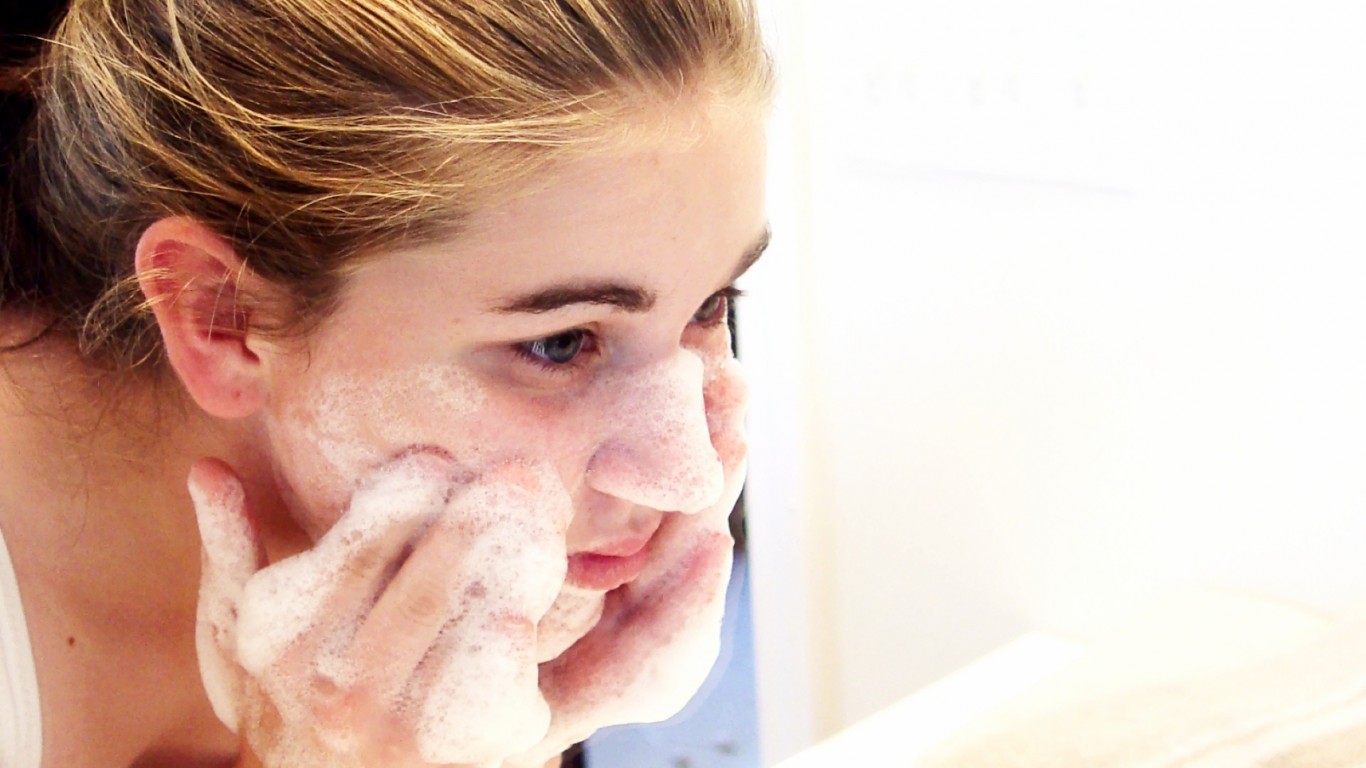
Too much of anything is never good and that includes facial cleansing. According to the American Academy of Dermatology, washing your face with lukewarm water in the morning and at night (and after sweating) is sufficient. Harsh soaps, as well as hot water, only dry the skin. Washing your face often, or taking a bath or showering often or for too long, will dry the skin by removing natural oils, making it itchy and prone to breakouts.
14. Not removing your makeup before bed
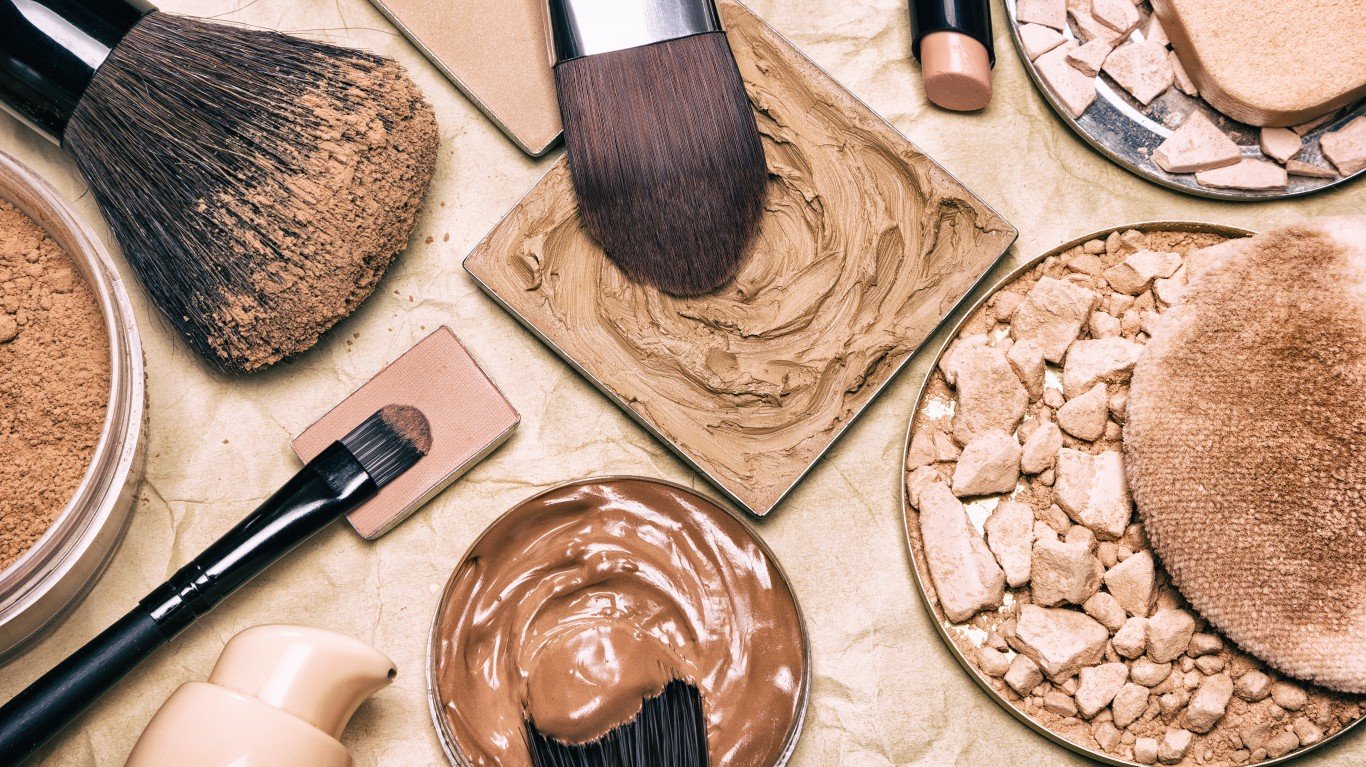
Just like you, your skin needs to breathe. Going to bed with makeup on can wreak havoc on your skin overnight. The skin is basically blocked and can’t breathe because the pores are clogged. The skin cannot recover from all the oxidative stress, including from air pollution, accumulated during the day. The resulting free radicals damage the skin’s collagen, causing wrinkles over time.
15. Not wearing sunglasses

Repetitive facial motions can eventually lead to fine lines. Not wearing sunglasses when the sun may cause you to squint, which continually utilizes the same muscles, much like drinking through a straw. Squinting basically means the skin cells are squeezed thousands of times from all the facial muscles moving. This leads to loosening of the skin, and eventually to wrinkles in the corners of your eyes.
16. Sitting all day
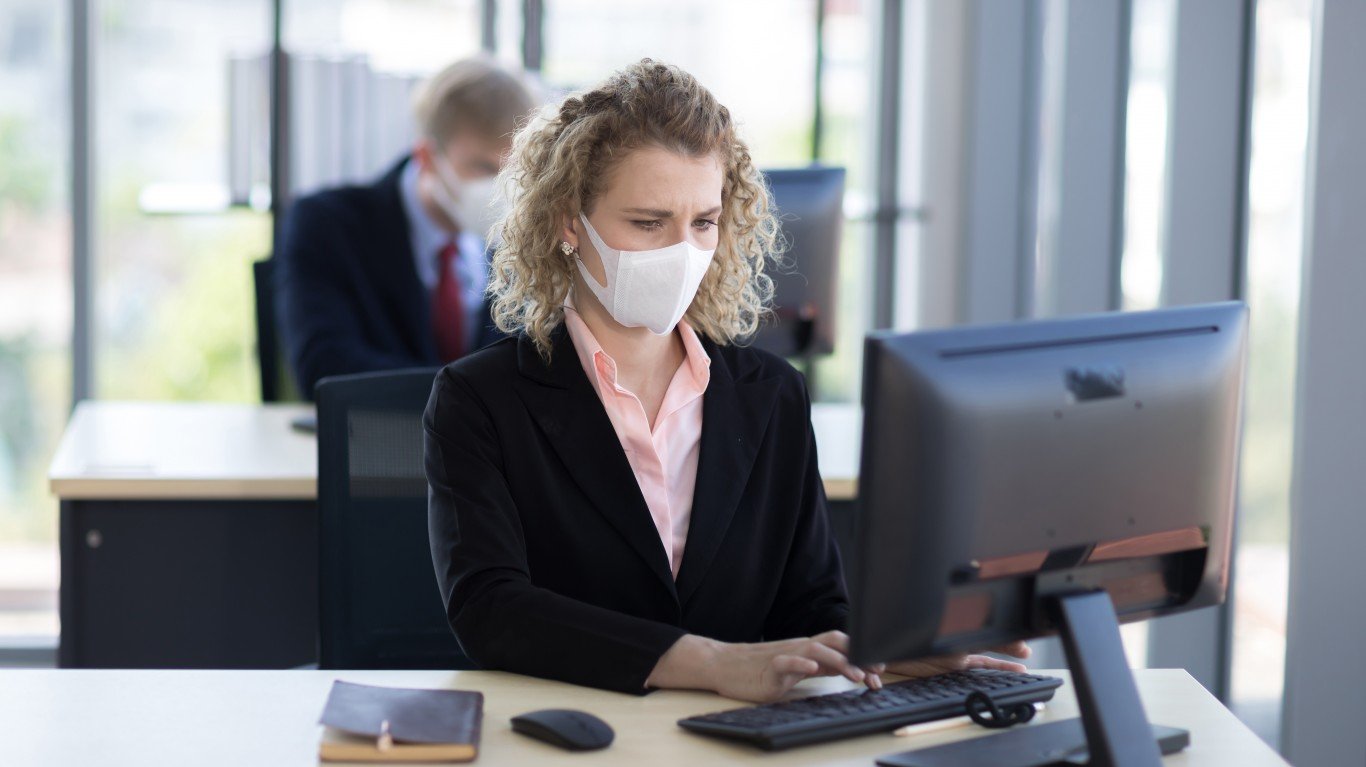
Moving is important and remaining in the same position for hours on end can have a negative effect on your body. The benefits of regular exercise don’t stop at weight control and higher levels of happiness. You may be able to slow down the skin’s natural aging process by working out a few times a week. Research has found that the muscles of older people who have exercised for years are very similar to those of healthy young adults. Exercising has made them biologically about 30 years younger.
17. Applying sunscreen only when the sun is out

Sunscreen is essential year-round, not only for summertime at the beach or when the weather is warmer. The sun’s harmful rays can penetrate the clouds and windows to get to your skin, causing wrinkles, spotting, and loss of elasticity. A study compared more than 900 people who applied sunscreen every day with others who did so only once in a while. The former showed no visible signs of photoaging after 4.5 years, and 24% less skin aging.
18. Avoiding fatty foods
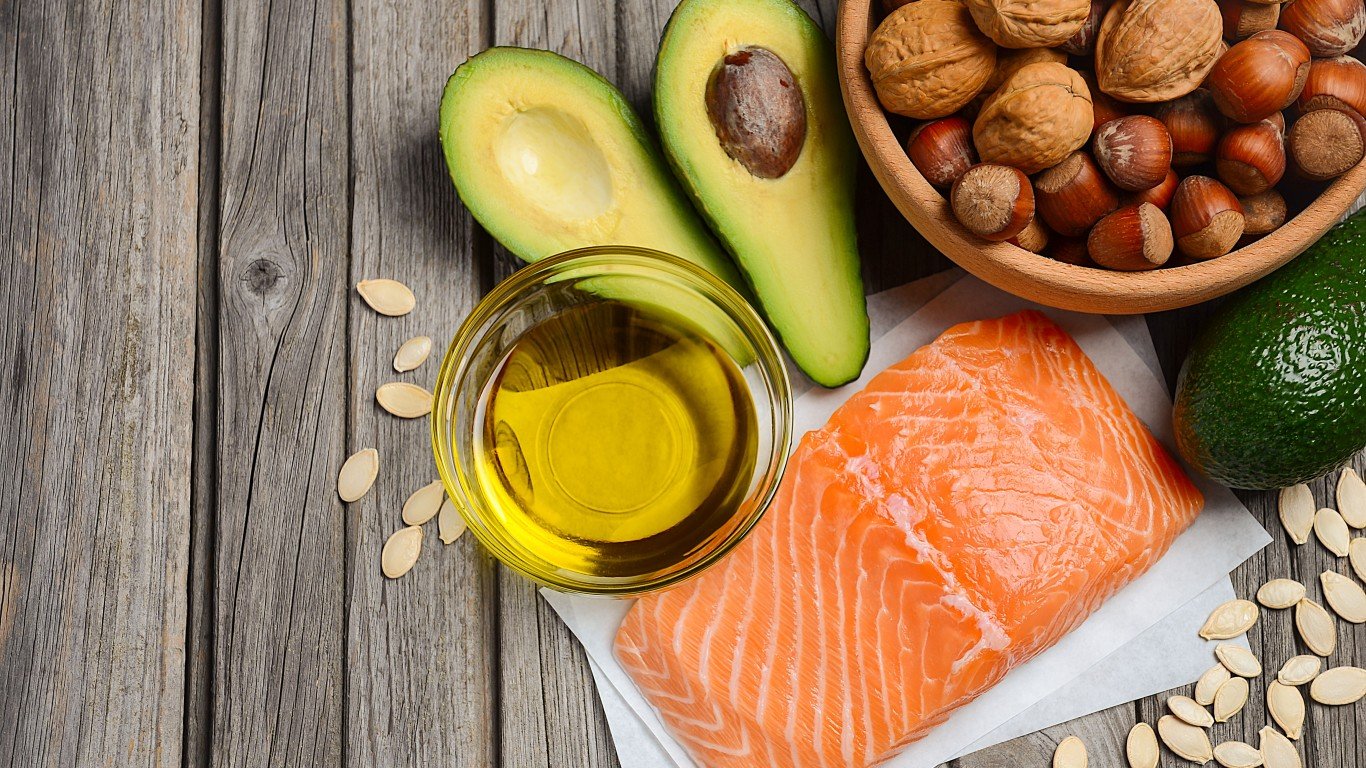
Fat is not always the enemy, depending on where you get it from. Not all fat is created equal, and the body needs the healthy kind, as its name — essential fatty acids — suggests. You can only get these from foods such as fish, nuts, avocados, eggs, chia seeds, olive oil, and some fortified foods. Omega-3s and omega-6s are essential for building healthy cells. They help produce the skin’s natural oil, which keeps it hydrated and glowing.
19. Crash dieting
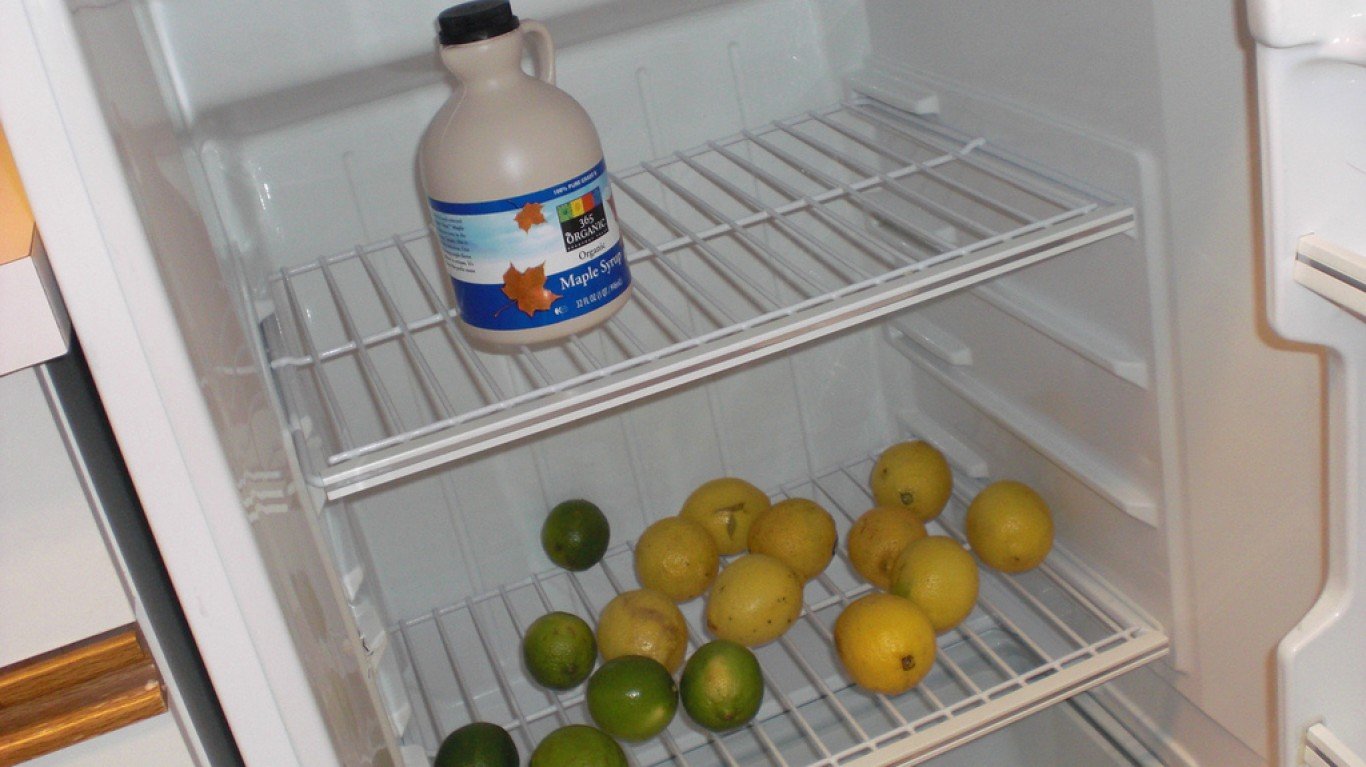
A healthy diet incorporated into your life is beneficial. However, diets that are extreme, and typically have limited nutrition do more harm than good. While some weight loss may be a desired result, it comes at a steep price, including dehydration, malnutrition, electrolyte imbalances, and muscle loss. When basic nutritional requirements are not met, the first organ to suffer is the skin. Vitamins and minerals have antioxidant properties, helping the skin stay healthy and youthful.
20. Multitasking

It may seem to be a desirable characteristic when looking for a job, but multitasking can hinder productivity and increase stress and fatigue. Research has shown that chronic stress shortens DNA telomeres, causing premature cellular aging. How exactly chronic stress damages the skin is not clear, but higher cortisol levels and cell changes are possible reasons.
